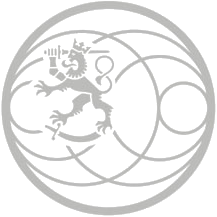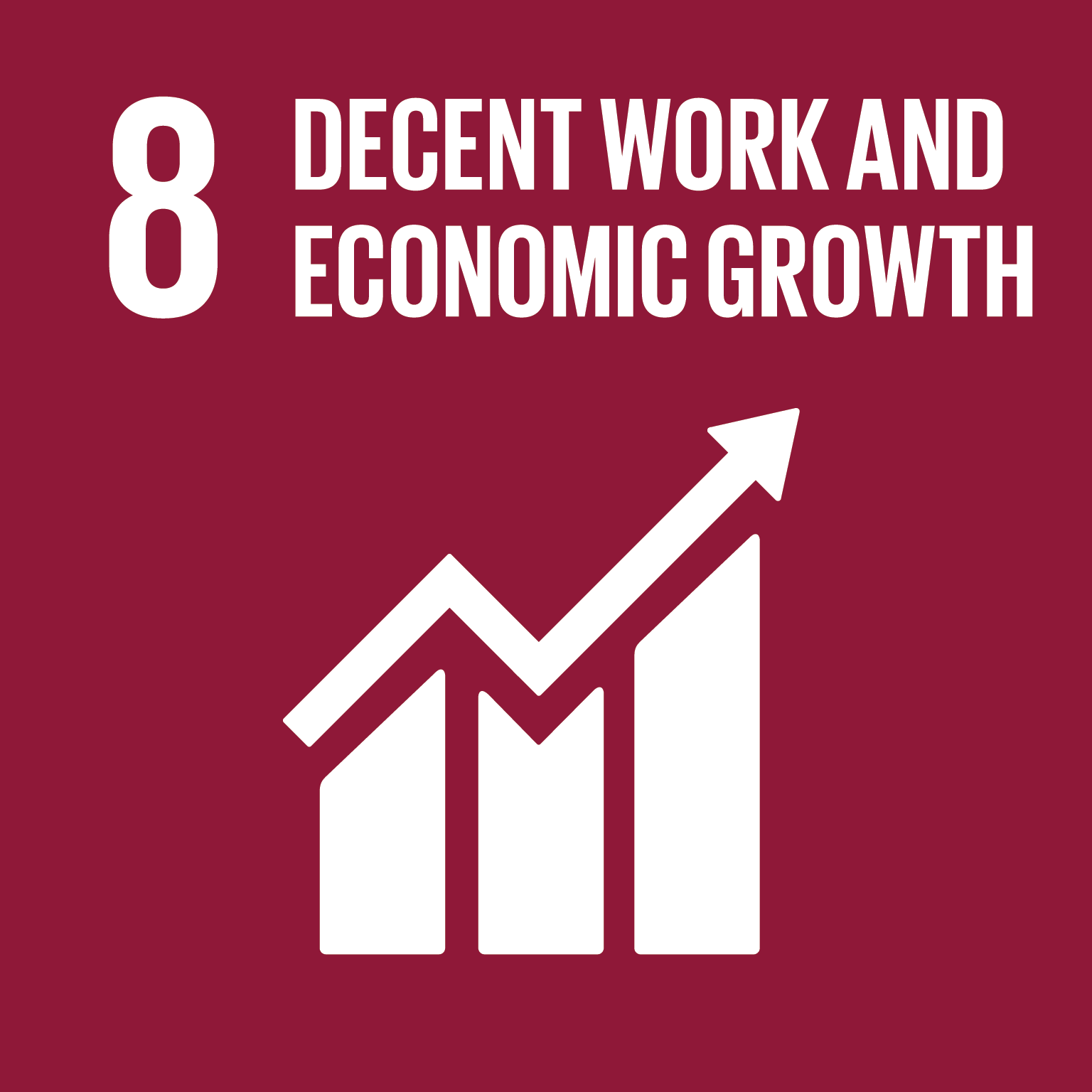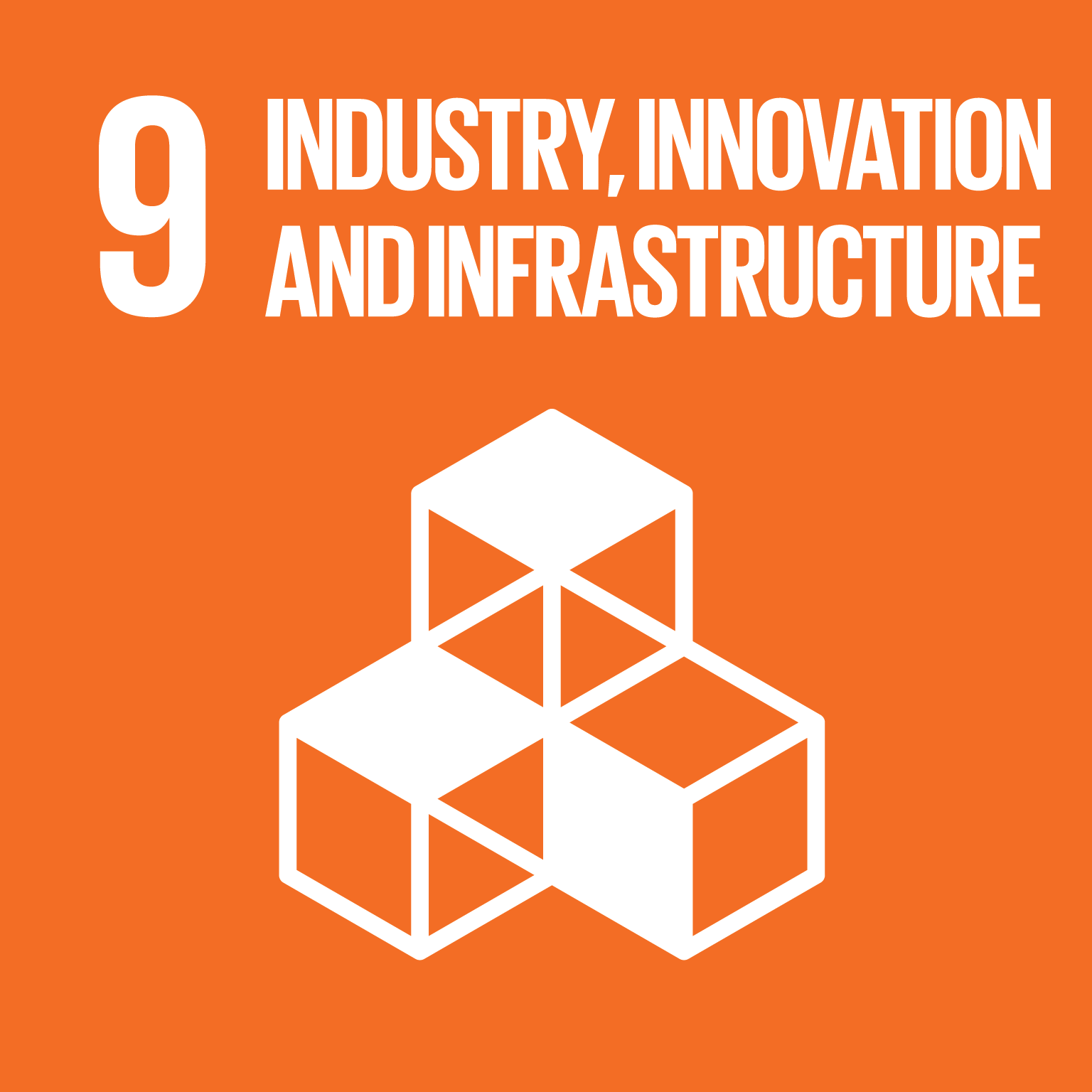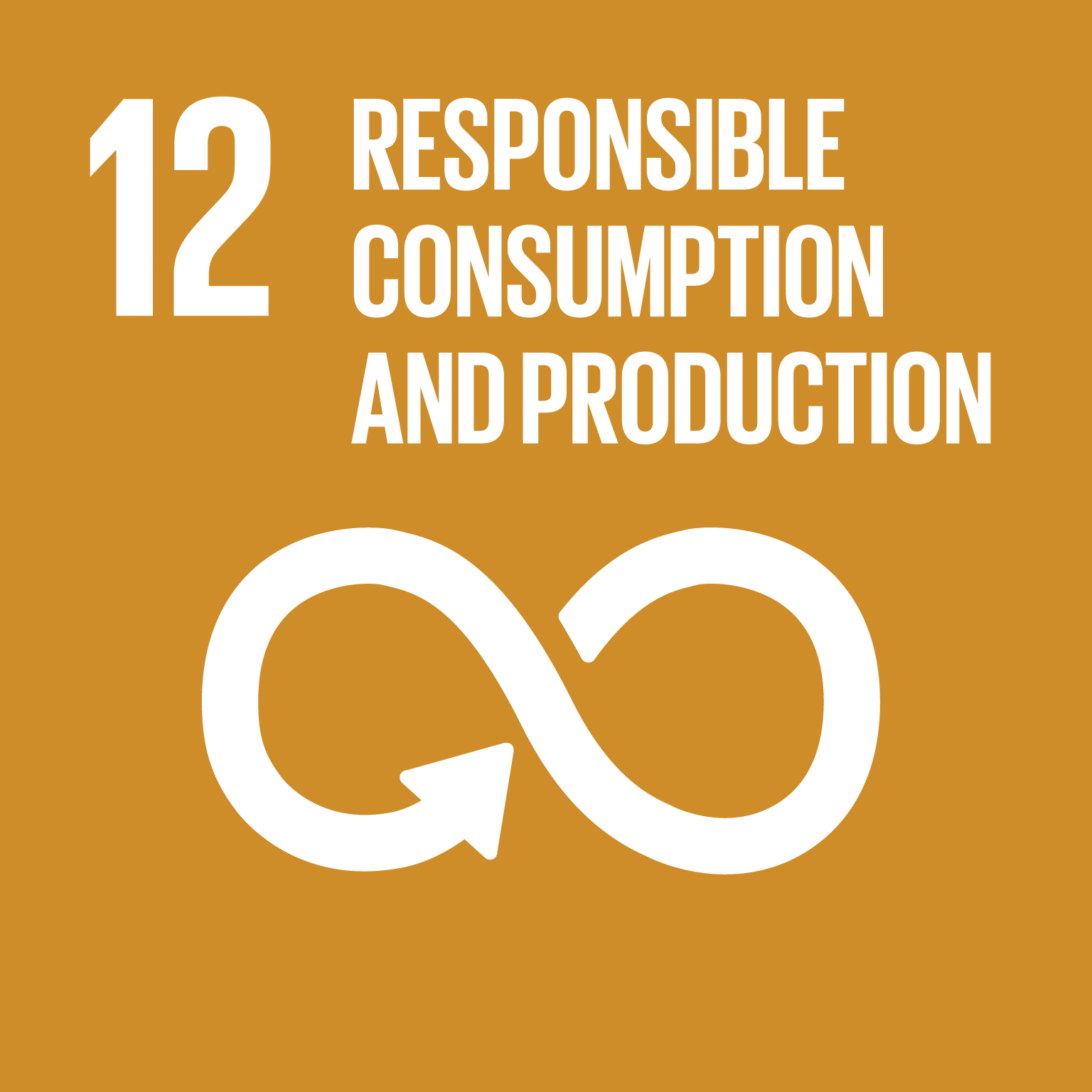Global situation
Extreme poverty has declined. Especially in China and elsewhere
in East and Southeast Asia, economic growth has been rapid and
jobs have led to substantial reductions in poverty. Rapid advances in technology have created new opportunities for jobs and economic growth, and the share of developing countries of the international trade has grown.
What has been achieved with Finnish support?
Finland has strengthened cooperation with the private sector and put emphasis on women’s employment.
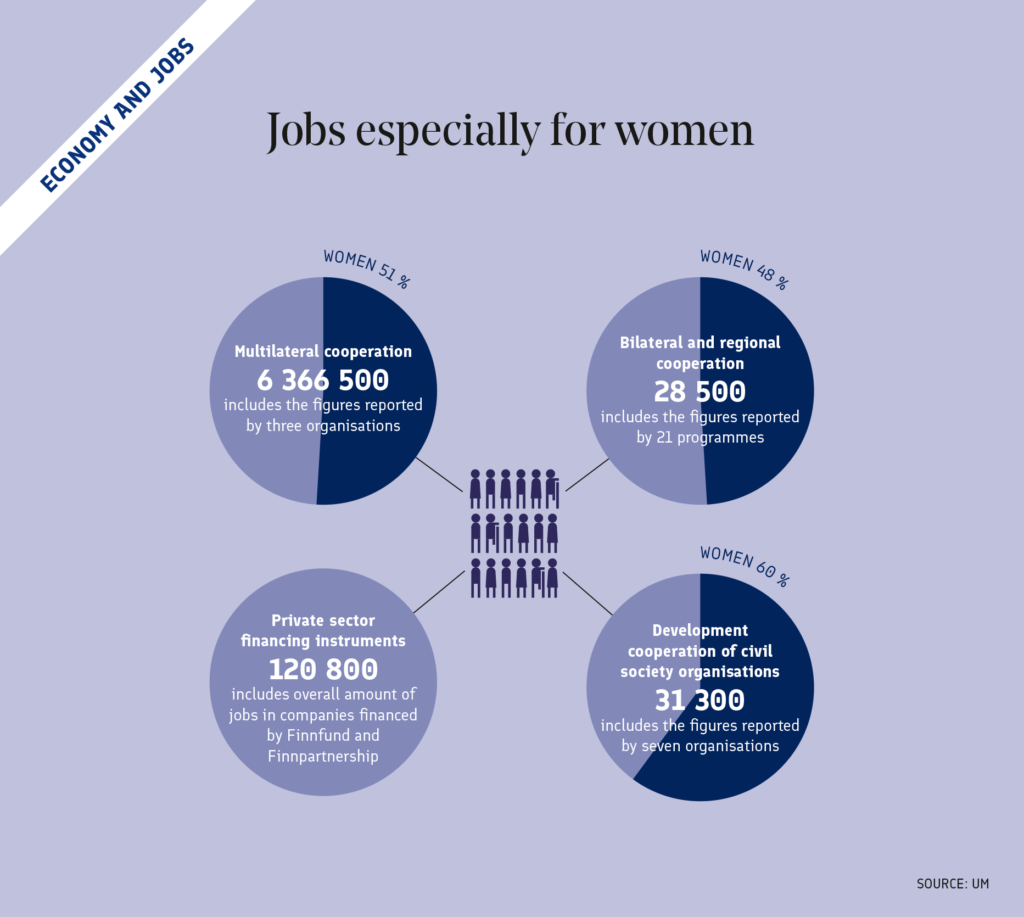
1. Better jobs
Decent work guarantees adequate income, is not life-threatening or harmful to health, respects the right to organise, is not discriminatory, and allows sufficient time for rest.
- Finland has supported coffee cooperatives in Peru through
Fairtrade Finland by providing them with training. Pay and working conditions in the cooperatives improved and job satisfaction jumped from 10 to 60 percent. - A UN programme in Zambia supported by Finland has provided
local people with 4,300 decent jobs. Working conditions in 3,500
workplaces improved, legislative reforms were introduced and
social security was enhanced. - In Tunisia and Egypt, Finland and ILO have jointly supported
women’s access to the labour market. About 1,200 women in a
vulnerable position have received vocational and entrepreneurship training. As a result, 60 per cent of them became self-employed or were employed in paid work. - Each year, thousands of persons with disabilities get work
and a source of livelihood with the support of the Abilis Foundation. Many of them become small entrepreneurs. - Trade Union Solidarity Centre of Finland is promoting the rights
of domestic servants. In Mozambique, domestic servants (>80 %
of whom are women) became eligible for social security in as many as between 80,000 and 120,000 women received the right to sickness and maternity leave and pension.
2. Business with Finnish support
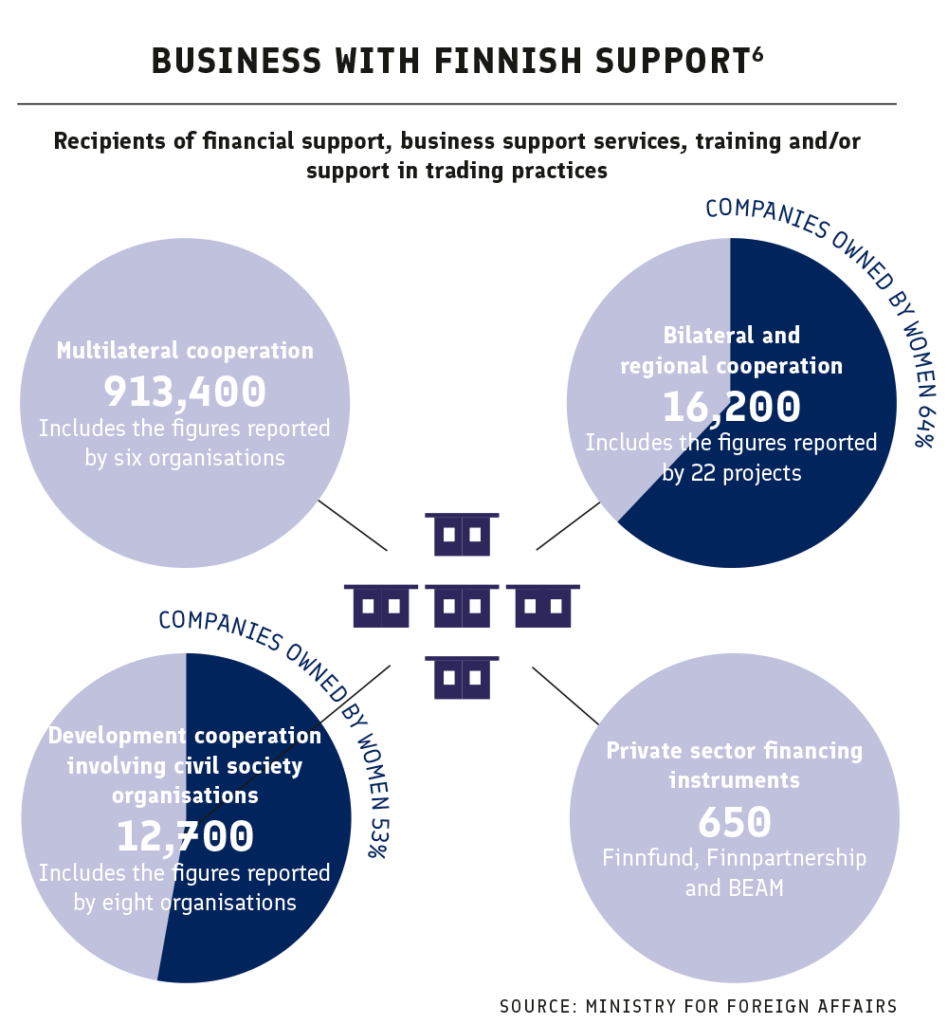
3. Training to trade
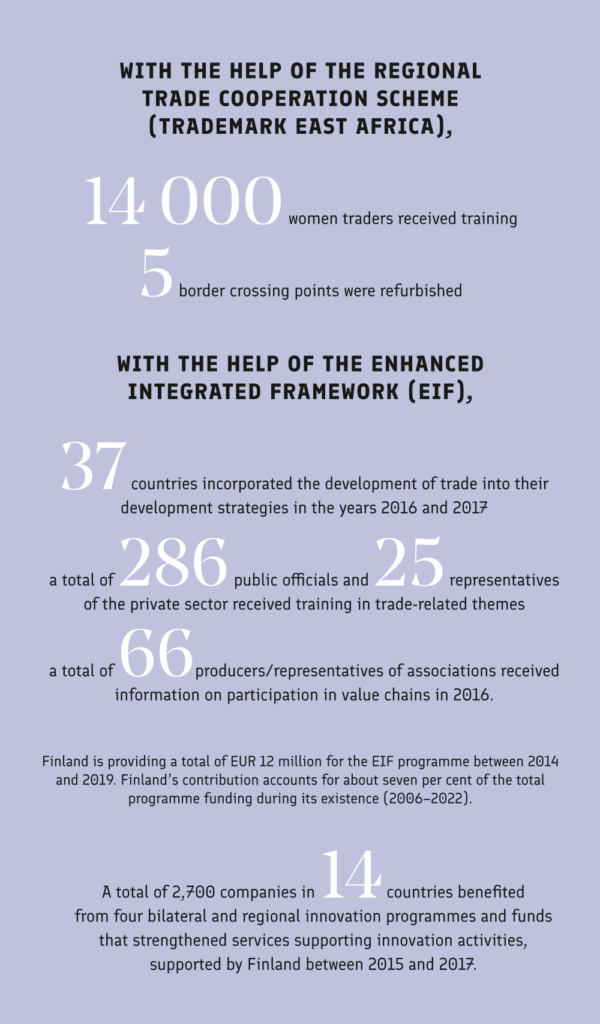
6. Regional trade and jobs for Central Asia
Businesses and public officials in the Kyrgyz Republic, Tajikistan and Uzbekistan have been developing their
foreign trade practices with Finnish assistance in a supported UNDP programme. Between 2015 and 2017, nearly 7,000 entrepreneurs received support for trading practices or training enabling them to boost production and make value chains more efficient. Public officials were provided with training in foreign trade practices and in the lowering of trade barriers.
Uzbek and Kyrgyz companies were able to conclude large
export contracts with European, Asian and Russian customers. The value of the contracts totalled about USD 400 million. There has been demand for clothing, nuts, milk products and dried fruit. The project has created nearly 800 new jobs. A mobile application for monitoring market prices of agricultural products was developed in Tajikistan. It has more than 200,000 users.
7. New cooperation in Vietnam through innovation partnerships
Innovation policy and start-up environments in Vietnam have been developed within the framework of the innovation partnership programme (IPP2) between Finland and Vietnam. The operating practices created in IPP have been adopted by the Ministry of Science and Technology of Vietnam and two
large cities have established an innovation centre with the
programme support.
More than 50 universities and education
institutions in different parts of the country have launched
innovation activities with the support granted from IPP.
About 100 people in managerial positions in public administration and universities have received training in innovation management and funding. The 18 companies supported by an accelerator programme for growth enterprises have created almost 700 new jobs. The companies have expanded their operations to the US, EU and Asian markets.
IPP has also provided a basis for scientific, technology
and innovation cooperation between Vietnam and Finland.
It has also led to the launching of smart city cooperation
between Finnish and Vietnamese cities and it has helped
18 Finnish SMEs to explore chances of a long-term
presence in the Vietnamese market.
Next section: Well-functioning society >
Read more:
Finland’s development policy and development cooperation are based on
the 2030 Agenda for Sustainable Development. Economy and jobs -priority contributes especially to the goals number 8, 9 and 12.
